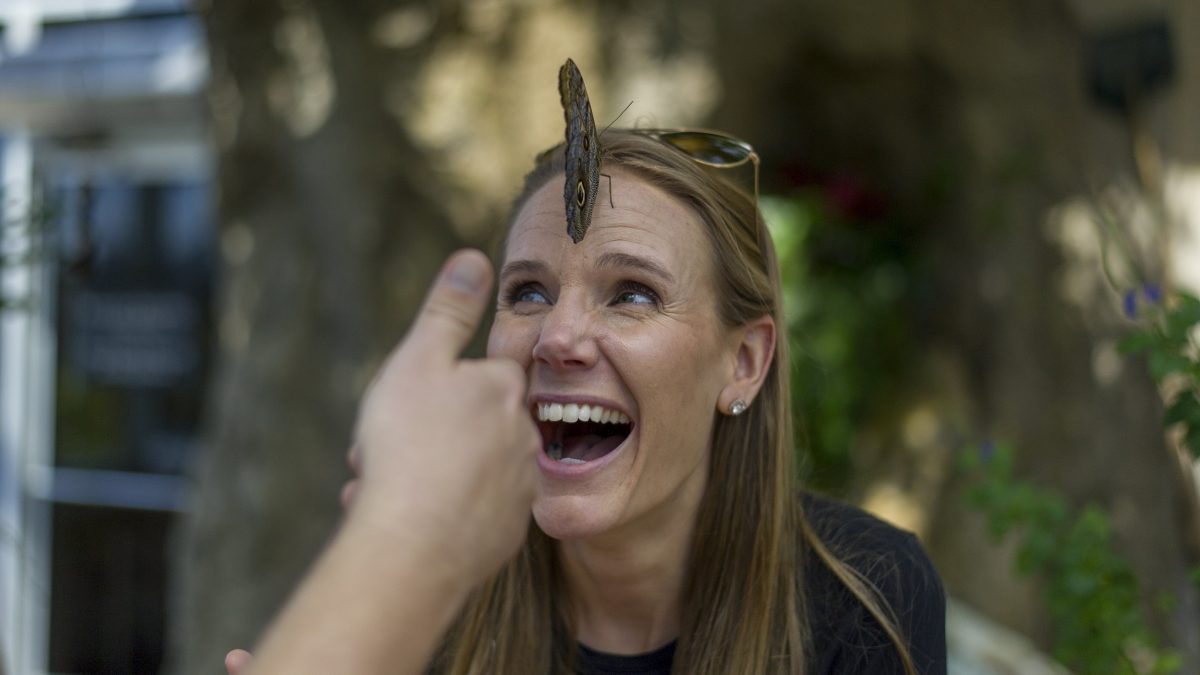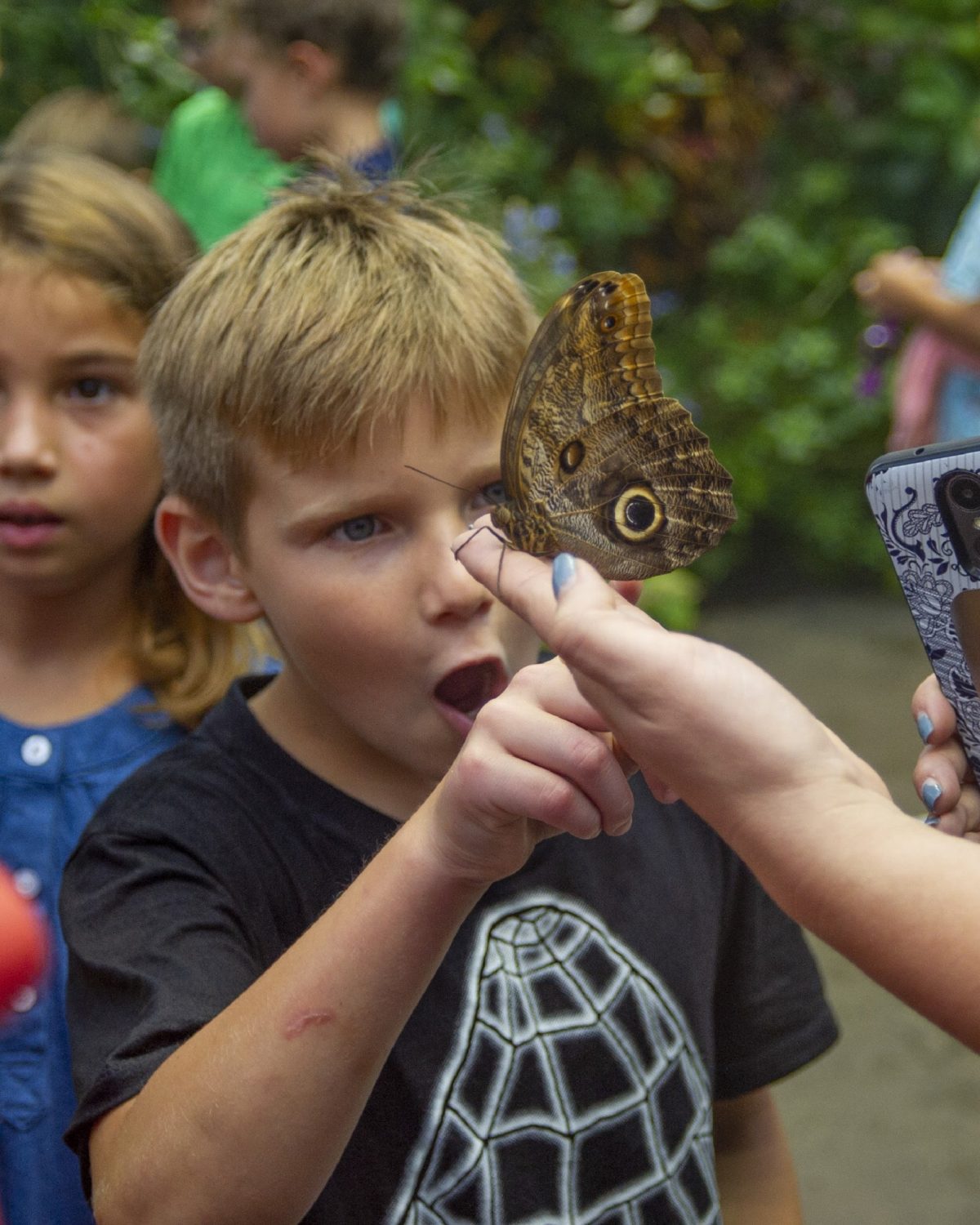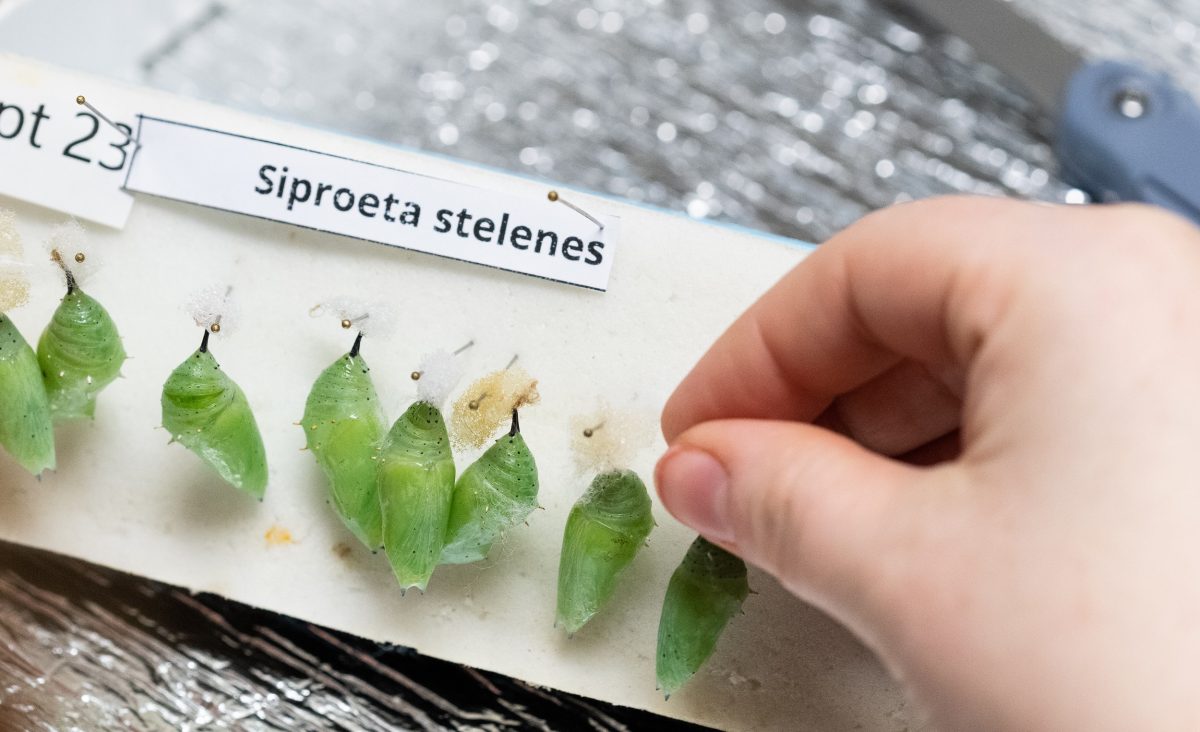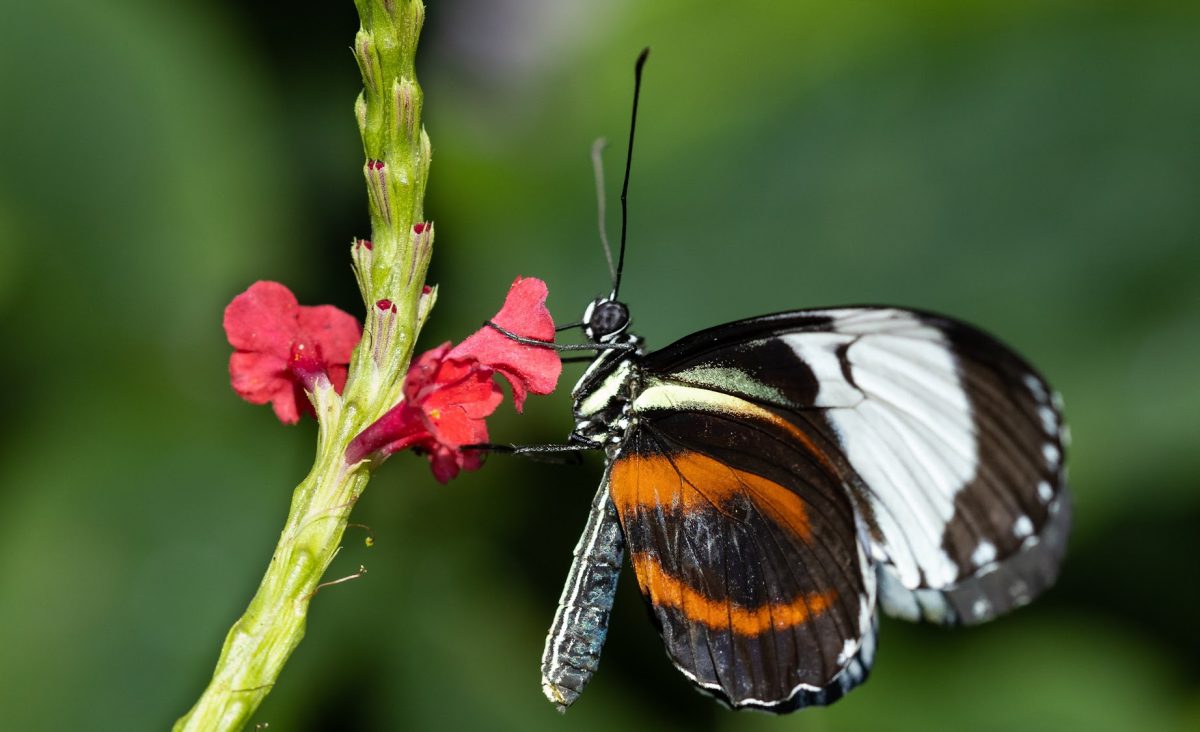From playful River Otters and sleek Sand Tiger Sharks to toothy American Alligators, there are certain animals that are undeniably iconic members of the Tennessee Aquarium’s living collection.
But some of the Aquarium’s most entrancing, cherished residents — and there are literally thousands of them — have been absent for more than a year and a half.
Thanks to supply chain disruptions, the Aquarium has been unable to source butterflies to fill the Ocean Journey building’s Butterfly Garden since early 2020. Now, just in time for the holidays, the Tennessee Aquarium’s Butterfly Garden will reopen to the public on Friday, November 5. This warm, light-filled gallery is once more filled with these jewel-like insects, which fill the air in their fluttering hundreds.


“They have so many bright colors and intricate patterns that they’re kind of like living works of art,” says Entomologist II Rose Segbers. “The Butterfly Garden is special because it’s completely immersive. There really aren’t any barriers between guests and the butterflies or the habitat.
“You can see everything just like you would in nature, and a butterfly might even land on you.”
Walking through the Garden is a transportive experience, like being whisked into the steamy, lush wilds of a Costa Rican rainforest. To ensure the wellbeing of its residents, the interior of the gallery is always kept warm and humid — a welcome escape from the cooler, dreary days of autumn — and seemingly every leaf, blossom and branch serves as temporary resting spot for butterflies of every description.
At any one time, the Garden houses between 1,000 and 1,500 butterflies. These can come from any of more than two dozen species, from cerulean-winged Blue Morphos to enormous Tawny Owls with their tell-tale eyespots.
“You get a lot of variety in here,” Segbers says. “If you come here one week, you’ll see a certain variety of butterflies, but if you come back a week later, you might see completely different ones. It gives people a good excuse to keep coming back.”

Every week, about 500 butterfly chrysalises — the life stage between caterpillars and full-fledged adults — are delivered to the Aquarium from Costa Rica. By raising specific plants, Costa Rican farmers can attract butterflies that use the plants as egg-laying sites and feeding sources for their offspring. By collecting and shipping chrysalises to facilities like the Aquarium, farmers can earn a reliable income without resorting to destructive agricultural practices that threaten their country’s life-rich rainforests.
The cocoon-like chrysalises can be viewed hanging from racks through a special viewing window in the Garden. Their shells often look drastically different from the butterflies within. Who would suspect that the familiar orange, black and white Monarch Butterfly would come from a gold-fringed, jade chrysalis or that leaf-like pink or green chrysalises are host to brilliant yellow Cloudless Sulfurs?
If they time their visit right — usually by arriving earlier in the day — guests may be lucky enough to see the butterflies in the act of emerging or flapping their wings to dry and prepare them for their first flight. Better yet, visitors can also watch a butterfly release, when newly emerged butterflies are collected and relocated to the gallery.
Guests aren’t encouraged to touch the butterflies, which can be harmed by even the most well-intentioned hands, but with such great numbers of these beautiful insects fluttering about, fingertips, shoulders and even heads often serve as impromptu perches. Those Instagram-ready moments are the kinds of experiences that can leave a lasting impression, Segbers says.

“I think that develops a certain kind of closeness between guests and the butterflies, especially for young guests,” she says. “They may take the good feelings and experiences they have here to their homes, where they can think about how they can enrich their relationship to the butterflies around them. It may even lead to a career in conservation in the future.”
To accompany the return of this long-absent feature of the Ocean Journey experience, the Aquarium is also bringing back the beloved IMAX film, Flight of the Butterflies 3D, to the Tennessee Aquarium IMAX 3D Theater.
From Friday, Nov. 5, to Wednesday, Nov. 24, the theater will offer daily screenings of this giant-screen classic, which follows the extraordinary, 3,000-mile journey of the Monarch Butterfly from Central Mexico to Canada and back again. This migration takes multiple generations to complete and follows a route that brings these beautiful, iconic insects through Chattanooga.
The film offers stunning footage of trees draped with countless multitudes of Monarchs, and scenes with clouds of butterflies so immense that their normally silent fluttering is fills the air with a ghostly rustle. These memorable moments, combined with the species’ visits to the Chattanooga area, made Flight of the Butterflies immensely popular with audiences when it was last shown on the theater’s six-story screen in 2012.
At the time, however, the IMAX 3D Theater was still screening using physical film reels. Since then, the film has been digitally remastered, and the theater has undergone a massive audio-visual upgrade to IMAX with Laser. This state-of-the-art projection system allows the theater to show films like Flight of the Butterflies at a level of quality unmatched by any facility within 500 miles of Chattanooga.
“This is audiences’ first opportunity to see the film with a brighter image, more vibrant colors, increased sharpness and greater contrast levels,” Cobb says. “This will be the best Flight of the Butterflies can possibly look and sound.”

